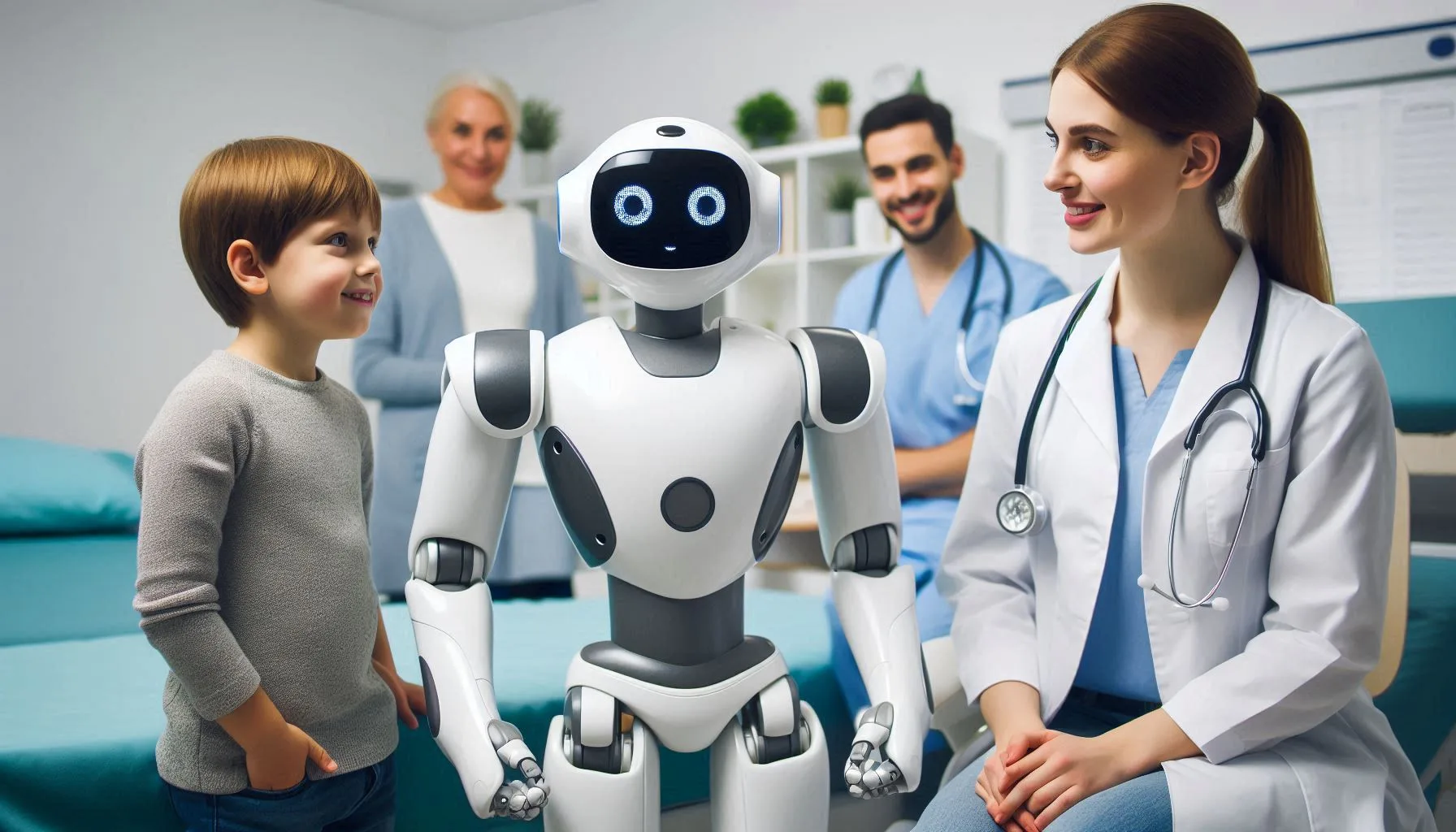Artificial Intelligence (AI) has undergone a transformative journey, particularly in the fields of biology and medical science. From its early inception to its current state, and with an eye to the future, AI continues to revolutionize these disciplines. Here’s a comprehensive exploration of how AI is shaping the landscape of biology and medical science, and the potential it holds for the future, including its role as a doctor.
A Historical Perspective
AI’s journey in the realm of biology and medical science began with the development of algorithms designed to analyze biological data. In the 1950s and 1960s, AI was primarily used for simple tasks such as data sorting and basic diagnostics. Early AI systems were rule-based, relying heavily on predefined protocols to make decisions. These systems were limited in scope and often struggled with the complexity of biological data.
By the 1970s and 1980s, advancements in computer technology and the advent of machine learning allowed AI to handle more complex tasks. Expert systems like MYCIN were developed to diagnose bacterial infections and recommend treatments based on user inputs. Although these systems showed promise, they were still far from being fully autonomous or highly accurate.
The Present: AI’s Integration into Modern Medical Science
Today, AI has become an integral part of medical science and biology, powered by vast amounts of data and sophisticated algorithms. The current landscape of AI in these fields can be categorized into several key areas:
- Diagnostics and Imaging: AI algorithms are now capable of analyzing medical images with remarkable precision. Tools like Google’s DeepMind and IBM’s Watson Health use AI to detect abnormalities in X-rays, MRIs, and CT scans. These systems often outperform human radiologists in terms of speed and accuracy, helping to identify diseases at earlier stages.
- Personalized Medicine: AI is at the forefront of personalized medicine, where treatments are tailored to individual patients based on their genetic makeup. Machine learning algorithms analyze vast genomic datasets to identify mutations and predict how different patients will respond to various treatments. This approach has revolutionized cancer treatment, allowing for more targeted and effective therapies.
- Drug Discovery: The process of discovering new drugs has been expedited by AI. Traditional drug discovery is a lengthy and costly process, but AI models can predict the efficacy and safety of potential drug compounds, significantly reducing time and costs. Companies like BenevolentAI and Atomwise use AI to identify promising drug candidates, accelerating the journey from the lab to the clinic.
- Electronic Health Records (EHRs): AI simplifies the management and analysis of EHRs, enabling healthcare providers to offer more efficient and accurate care. Natural language processing (NLP) algorithms extract meaningful information from unstructured data in EHRs, aiding in decision-making and improving patient outcomes.
- Robotics and Surgery: Robotic surgery systems like the da Vinci Surgical System use AI to assist surgeons in performing complex procedures with precision and minimal invasiveness. These systems enhance the capabilities of surgeons, resulting in better outcomes and faster recovery times for patients.
AI as a Doctor: The Present and Future
The concept of AI as a doctor is not far-fetched. In many ways, AI already assists doctors in making informed decisions and providing better care. However, the future holds even more promising possibilities.
- Current AI Applications in Clinical Settings: AI-powered chatbots and virtual health assistants are becoming common in clinical settings. These tools can handle routine inquiries, schedule appointments, and even provide basic medical advice. AI algorithms also assist doctors by analyzing patient data and suggesting possible diagnoses, enabling more accurate and timely treatment.
- Autonomous AI Doctors: Looking ahead, the development of fully autonomous AI doctors is a possibility. These AI systems would be capable of diagnosing and treating patients without human intervention. Advances in natural language processing, computer vision, and machine learning are paving the way for such innovations. However, significant challenges remain, particularly in terms of regulatory approval, ethical considerations, and ensuring the accuracy and reliability of these systems.
- AI in Remote and Underserved Areas: One of the most promising applications of AI in medicine is its potential to provide healthcare to remote and underserved areas. In regions where access to medical professionals is limited, AI-powered diagnostic tools can offer much-needed support. These tools can analyze symptoms and medical history, providing accurate diagnoses and treatment recommendations, which can be life-saving in areas with limited healthcare infrastructure.
- Continuous Learning and Adaptation: AI systems have the advantage of continuous learning and adaptation. Unlike human doctors, who need to stay updated with the latest medical research, AI can ingest and analyze new information in real-time. This capability ensures that AI systems are always equipped with the most current knowledge, potentially leading to better patient outcomes.
- Ethical and Regulatory Considerations: While the potential for AI to act as a doctor is immense, it also raises important ethical and regulatory questions. Ensuring patient safety, maintaining privacy, and addressing the potential for bias in AI algorithms are crucial considerations. Robust regulatory frameworks will be essential to oversee the deployment and use of AI in clinical settings.
The Future: AI in Biology and Medical Science
The future of AI in biology and medical science is brimming with possibilities. Here are a few areas where AI is expected to make significant strides:
- Predictive Analytics and Preventive Medicine: AI’s ability to analyze large datasets will enable more accurate predictive analytics. By identifying risk factors and early signs of diseases, AI can contribute to preventive medicine, helping to avert illnesses before they become severe. This approach has the potential to transform healthcare by shifting the focus from treatment to prevention.
- Advanced Genomics: AI will continue to play a crucial role in genomics, enabling deeper insights into genetic disorders and the development of gene therapies. Machine learning algorithms can identify complex patterns in genetic data, leading to breakthroughs in understanding and treating hereditary diseases.
- AI-Powered Medical Research: The integration of AI into medical research will accelerate the discovery of new treatments and therapies. AI can analyze vast amounts of scientific literature, identify trends, and generate hypotheses, speeding up the research process and leading to more rapid medical advancements.
- Telemedicine and AI: The rise of telemedicine, accelerated by the COVID-19 pandemic, will continue to benefit from AI. AI-powered virtual health assistants can provide remote consultations, monitor patients’ health, and offer personalized health advice. This trend will improve access to healthcare, particularly in remote areas.
- Human-AI Collaboration: The future of AI in medicine is likely to be characterized by collaboration between human doctors and AI systems. Rather than replacing human doctors, AI will augment their capabilities, allowing for more accurate diagnoses, personalized treatments, and improved patient outcomes. This synergy will create a new paradigm in healthcare, where human expertise and AI-driven insights work together to deliver the best possible care.
Conclusion
AI has come a long way since its early days, evolving from basic data analysis tools to sophisticated systems that are integral to modern medical science and biology. Its applications span diagnostics, personalized medicine, drug discovery, EHR management, and robotic surgery, among others. While the idea of AI acting as a fully autonomous doctor is still on the horizon, current developments indicate that AI will play an increasingly significant role in healthcare.
The future of AI in biology and medical science holds tremendous promise. Predictive analytics, advanced genomics, AI-powered medical research, and telemedicine are just a few areas where AI is expected to make groundbreaking contributions. As AI continues to evolve, the collaboration between human doctors and AI systems will redefine healthcare, leading to better patient outcomes and more efficient medical practices. In conclusion, AI’s journey in biology and medical science is far from over. With ongoing advancements and innovations, AI will continue to push the boundaries of what is possible, transforming the way we understand and practice medicine.




